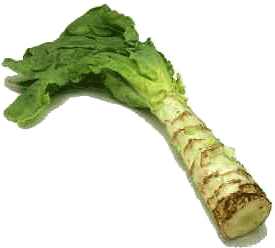General Dietary Restraints and Taboos
General food and food incompatibilities
| Should not be eaten with: | |
| Pork | Liquorice root, buckwheat, crucian carp, yellow soy bean, raw coriander, lamb liver, quail, field snail |
| Chicken | Plum, mustard, glutinous rice, carp, rice field eel |
| Beef | Garlic chives, chestnut |
| Rabbit meat | Mustard, raw ginger |
| Mutton | Plum, buckwheat, vinegar |
| Lamb liver | Pork, bamboo shoot |
| Venison | Catfish |
| Egg | Soy bean milk, raw spring onion, sweet potato, rabbit meat, carp |
| Milk | Raw fish, spinach, sour food |
| Crab | Persimmon, loach, celery, pomegranate, mulberry, sweet potato |
| Crucian carp | Mustard cabbage, pig liver, taro |
| Carp | Taro, salty food, egg, pork, chicken, pumpkin |
| Plum | Egg, mackerel, chicken, duck, duck egg, honey |
| Persimmon | Crabs, sweet potato, egg, Chinese tea, wine |
| Spinach | Bean curd, cucumber, rick filed eel, cheese |
| Celery | Cucumber, clams, crabs |
| Gingko fruit | eel |
| Pumpkin | Carp, crab, chilli peppers, mutton, sea fish, shrimp, chicken |
| Corn | apricot kernel |
 |
 |
 |
According to traditional Chinese medicine (TCM), adverse effects that result from these combinations may include an accumulation of metabolic wastes, relapse of disease, skin rashes or even stagnation of qi(vital energy).
Dietary restraint in certain health conditions
A basic principle in TCM is that when a person suffers from a certain disorder or takes medication, he should avoid certain foods. For example, a person suffering from generalized body swelling should refrain from salty food, and a person suffering from diarrhea should avoid a greasy diet. TCM physicians usually advise their patients to consider the following aspects:
- During a recovery stage or just after an illness, individuals usually have a poor appetite. They should eat in small meals and cut down the amount of grain and wheat products, such as noodles or cakes that made from glutinous rice, barley and wheat.
- Diarrhea patients should avoid cold foods and drinks, and also limit the amount of fruits and raw vegetables.
- For those who have excess phlegm and dampness (often in those with hypertension, diabetes, obesity, asthma, gout, coronary heart disease, and cardiovascular problems), they should cut down the amount of oily, fatty, deep fired foods, and even animal organs and daily products.
- For those who have a wind-heat disharmony, phlegm-heat disharmony or skin problems, fishy and other strong flavor meat should be avoided, such as sea fishes, shrimp, crab, mussel, mutton and venison.
- Individuals with internal heat, that shows dry cough, dry mouth, hot flush, or dry stool should avoid hot and pungent foods such as onion, ginger, garlic, chilli pepper, pepper, garlic chives, wine and cigarette.
- “Trigger foods” are referring to certain items that can cause a relapse of preexisting health problem to an individual. For example, buckwheat, bean sprouts, goose, chicken head, duck head, and pig head are generally not recommended to those who have asthma, convulsion, stroke and skin problems, while bean sprouts and coriander should be avoided in the early stage of measles.
It should be noted that TCM food taboos are for general reference only; they might have different results in different people, and the undesired effects may be altered during cooking too. Since there have been no recent studies on possible negative interaction, it is difficult to determine the outcome and hence, infrequent consumption is advised.
References
- Beijing University of Chinese Medicine (ed), Basic Theories of Traditional Chinese Medicine, by Academy Press, 2002-2
- Lun Xin & Rong Li (ed.), Tonifying by Seasonal Chinese Foods, by People's Medical Publishing House, 2001-12.
- Chen Qingfa & Yu Junsheng (ed.), Tonifying effect and Taboo of Chinese Food, by Shanghai Science and Technology Publishing House, 2002-8.
- Wang Kunggen (chief ed.), TCM Health Preservation of Women Diseases, by People's Medical Publishing House, 2000-1.
- Fang Liangzhu (ed.), Food Recipes for Health Preservation and Longer life, by Reader's digest (Far East) Co. Ltd. (1997).
- 6. Sheila McNamara & Dr. Song Xuanke, Traditional Chinese Medicine, by Hamish Hamilton Ltd. c1995 p.120-123.
- Ou Ming (ed.), Chinese-English Dictionary of TCM, by Joint Publishing (HK) Co., Ltd. c1999.
Special thanks to Elpidio Talens Juan for helping with article graphics.


